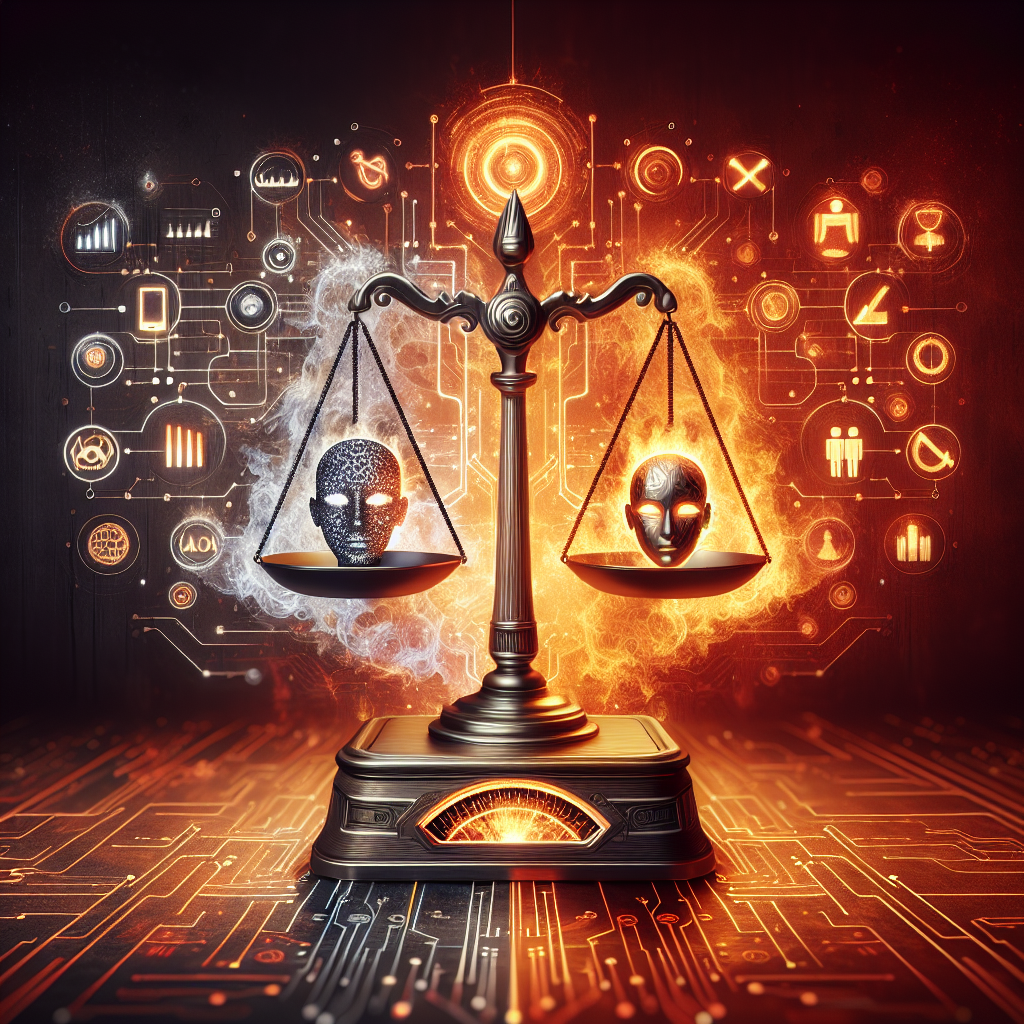Artificial Intelligence (AI) has the potential to revolutionize the way we live, work, and interact with each other. From self-driving cars to personalized recommendations on streaming platforms, AI is already deeply embedded in our daily lives. However, as AI continues to advance and become more sophisticated, it also poses risks to fundamental human rights, including freedom and equality.
One of the main concerns surrounding AI is its potential to infringe on our right to privacy. AI systems are designed to collect and analyze vast amounts of data in order to make decisions and predictions. While this can be beneficial in many ways, it also raises serious privacy concerns. For example, facial recognition technology can be used to track individuals without their knowledge or consent, leading to potential violations of privacy rights.
Moreover, AI algorithms are not immune to biases and discrimination. These algorithms are trained on data sets that may contain implicit biases, which can lead to discriminatory outcomes. For instance, AI-powered hiring tools have been found to favor certain demographics over others, perpetuating existing inequalities in the workforce. This can have serious consequences for marginalized communities who are already facing discrimination in various aspects of their lives.
In addition, the use of AI in law enforcement and criminal justice systems raises concerns about due process and fairness. Predictive policing algorithms, for example, have been criticized for targeting minority communities and perpetuating racial profiling. Similarly, AI-powered sentencing tools have been found to produce biased outcomes, leading to unequal treatment of individuals within the criminal justice system.
Furthermore, the increasing automation of jobs through AI technologies poses a threat to economic equality. While AI has the potential to boost productivity and create new opportunities, it also has the potential to displace workers and exacerbate income inequality. As more jobs become automated, low-skilled workers are at risk of being left behind, widening the gap between the wealthy and the working class.
In light of these risks, it is crucial to ensure that AI technologies are developed and deployed in a way that upholds human rights principles. This requires transparency, accountability, and oversight in the design and implementation of AI systems. It also requires robust regulations and guidelines to prevent the misuse of AI and protect individuals from harm.
Frequently Asked Questions:
Q: How can AI infringe on our right to privacy?
A: AI systems are designed to collect and analyze vast amounts of data, which can lead to potential violations of privacy rights. For example, facial recognition technology can be used to track individuals without their knowledge or consent, raising serious privacy concerns.
Q: How do biases in AI algorithms affect equality?
A: AI algorithms are trained on data sets that may contain biases, leading to discriminatory outcomes. For example, AI-powered hiring tools have been found to favor certain demographics over others, perpetuating existing inequalities in the workforce.
Q: What are the concerns surrounding AI in law enforcement?
A: The use of AI in law enforcement raises concerns about due process and fairness. Predictive policing algorithms have been criticized for targeting minority communities and perpetuating racial profiling, while AI-powered sentencing tools have been found to produce biased outcomes.
Q: How does the automation of jobs through AI affect economic equality?
A: The increasing automation of jobs through AI poses a threat to economic equality. While AI has the potential to boost productivity and create new opportunities, it also has the potential to displace workers and exacerbate income inequality.
In conclusion, AI has the potential to bring about tremendous benefits to society, but it also poses risks to fundamental human rights, including freedom and equality. It is imperative that we address these risks and work towards ensuring that AI technologies are developed and deployed in a way that upholds human rights principles. By promoting transparency, accountability, and oversight in the design and implementation of AI systems, we can mitigate the risks and maximize the benefits of this transformative technology.

